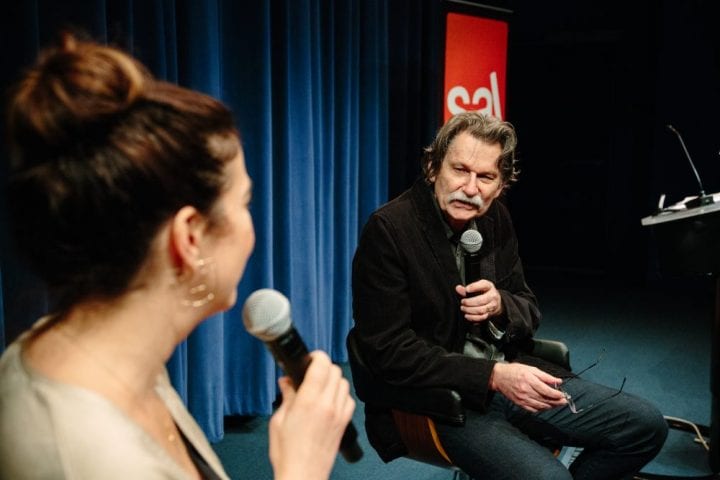
5 Reasons to See Gregory Orr
February 6, 2018
We can think of many reasons to see the master of the short, personal lyric, Gregory Orr, at his Poetry Series event on Wednesday at McCaw’s Nesholm Family Lecture Hall—here are just five! Tickets will be available at the door; the box office opens at 6:00 PM.
For their Sunday After SAL program, Open Books: A Poem Emporium will also be having a discussion of Orr’s work, led by Open Books Poet-in-Residence Lena Khalaf Tuffaha, Feb. 11 from 10:00 – 11:30 AM.
By Lucienne Aggarwal, SAL Intern
1. He gets poetry skeptics. When he was a child, he remembers that most of his teachers, rather than illuminating the beauty of poetry, made it all seem like “horrible stuff.” Orr’s lightbulb moment about the potential and power of verse arrived when he heard the Beatles song, “I Want to Hold Your Hand” on the jukebox. Orr says, “It felt like something was speaking across my sense of isolation and my sense of longing to connect.” Orr elaborates further: “As a kid, you hear that song that you just totally love, it just speaks to you. You become emotionally alive in a mysterious and exciting way. And that’s what poetry does” (PBS NewsHour).
2. He was imprisoned for dedication to the Civil Rights Movement. In 1965, at the age of eighteen, Orr was travelled to Mississippi to give support for the movement and participate in a cotton strike. The cotton field workers, some of whom were children, were only earning $4 a day, and were protesting the inequity of their situation. Because of Orr’s participation in that strike, he was arrested and jailed. He, along with other protesters, experienced physical assault from the police officers there. Following his jail stint, Orr was also kidnapped by armed vigilantes in Alabama who kept him isolated for a week.
3. He sees the need for poetry in times of human trauma. In the aftermath of 9/11, Orr wrote an essay titled “Poetry and Survival,” which sought to come to terms with many Americans’ sudden need for poetry. Orr states that “lyric poetry, especially the personal lyric, exists in all cultures at all times precisely because it performs an essential survival function for all individuals, especially when they undergo crisis. It helps individual selves (the poets) and then it extends its survival efficacy outward towards those listeners or readers who respond to the poem’s situation as if it were, in some way, their own” (Valparaiso Review). His complex and riveting memoir, Poetry as Survival, also unpacks the powerful role poetry can play in confronting, surviving, and transcending suffering.
4. He can teach us a thing or two about dedication. Seven days a week, from 8 am until 1 pm, Orr says, “I belong totally to poetry, with my complete attention. I sit there and drink coffee and mess around with words and fiddle with poems, dream about things. It’s a kind of discipline. My two enemies are interruptions and hunger” (Times Leader).
5. He’s a beloved proponent of the lyric. He almost exclusively writes in free verse and uses the lyric style (although he’s dabbled in villanelles). In an interview for the Paris Review, Orr states, “The first thing that persists is being a lyric poet- that’s going to persist across any change. For me, that means concentration of language in a given moment. What I’ve always been interested in is getting the emotional, imaginative, linguistic intensity of lyric but also getting the scope of narrative.”